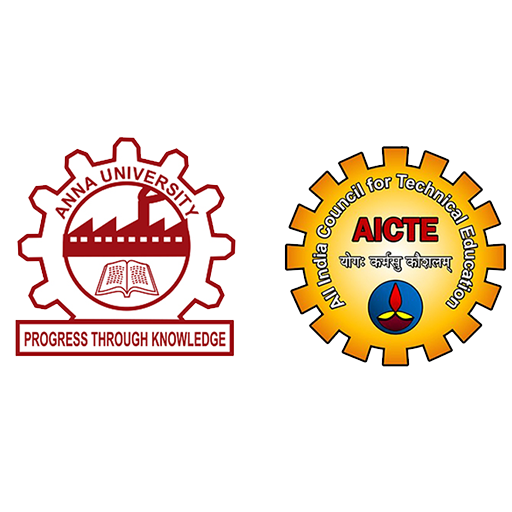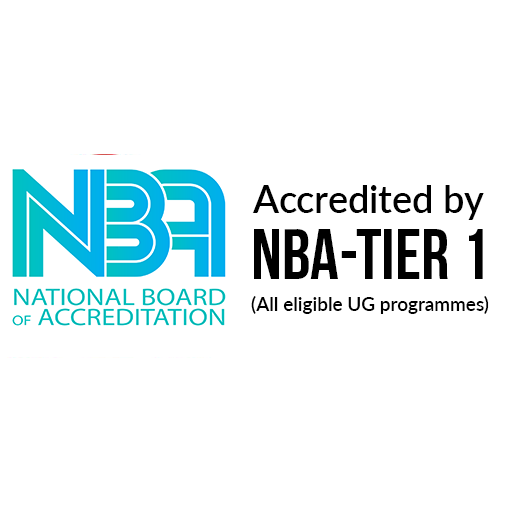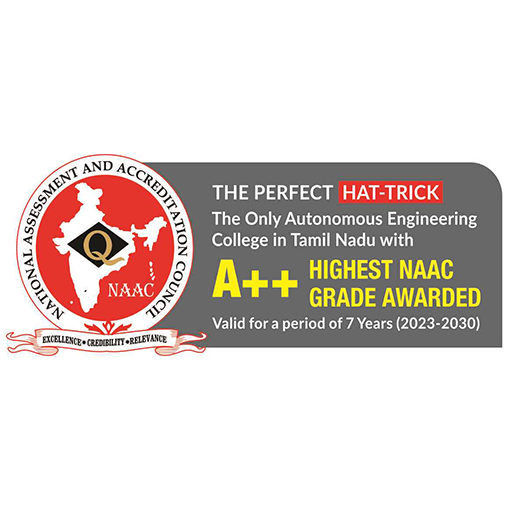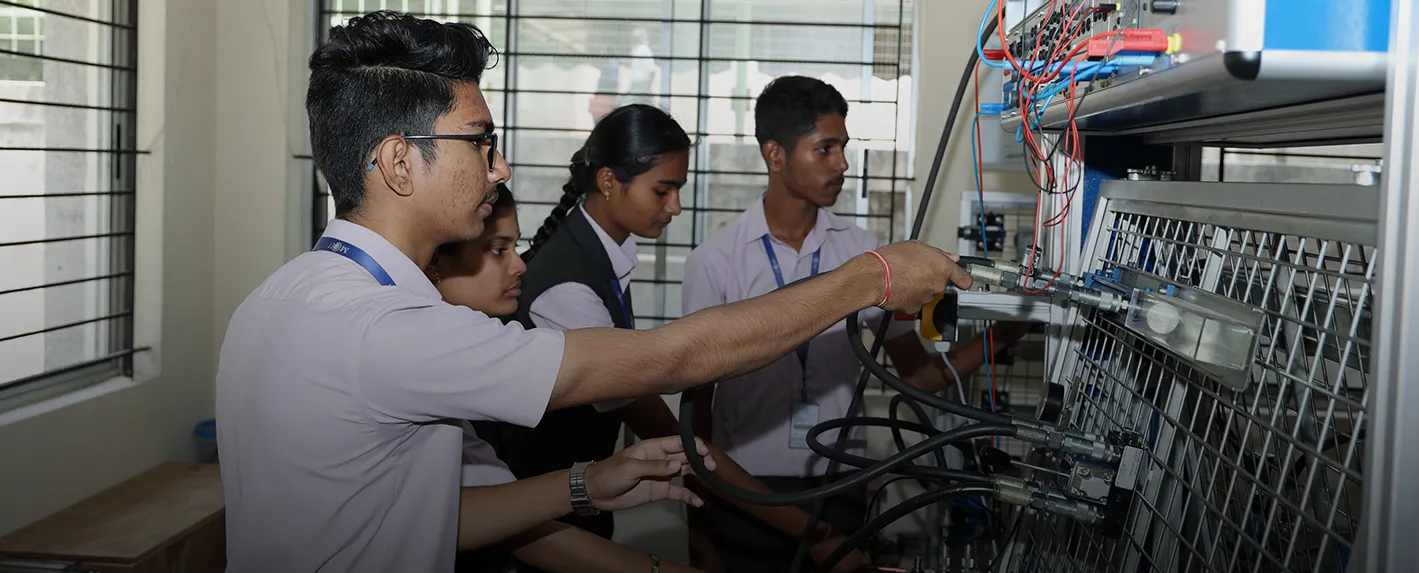As the pinnacle of a student’s technical education and a crucial link between classroom instruction and professional engineering, final year engineering projects serve as more than just an academic obligation. Due to such initiatives, students from reputed institutions like Dr. Mahalingam College of Engineering & Technology (Dr. MCET), get the chance to put their academic knowledge to practical use. By instilling qualities such as innovation, creativity, and problem solving abilities, we prepare students for success in their future careers.
Bridging Theory & Practical Application
Since textbooks are unable to fully capture the challenges of real-world application, engineering is centered on solving real-world problems. Students are forced to solve real-world problems through final year projects, which go beyond numbers and graphs. For instance, a mechanical engineering student might design a low-cost solar dryer for agricultural use, while a computer science student could develop an AI-driven app for traffic management. These tasks have students consider topics like material costs, environmental impact, and user accessibility that are rarely discussed in exams. Areas like Coimbatore and Pollachi are known for their industrial and agricultural ecosystems. Most institutions located in these developing areas fund initiatives to address local problems such as water scarcity and industrial waste management. This hands-on approach is crucial for students to understand the challenges that professional engineers face on a daily basis.
Developing Critical Soft Skills
In addition to honing technical skills, final year projects help students develop important soft skills. It is rarely possible to do engineering alone – collaboration, communication, and project management are required. In order to work in groups, assign tasks, and meet deadlines, students must coordinate with faculty advisers and, on occasion, industry mentors. Presenting their work to panels, defending their strategies, and taking criticism into account all help them become more confident and mentally clear. At colleges like Dr. MCET, where projects are often evaluated by external experts, students learn to articulate complex ideas clearly, a skill highly valued in job interviews and workplace environments.
Fostering Innovation & Social Responsibility
Final year projects commonly inspire students to cultivate creativity, investigate advanced technology, and tackle critical social challenges. This is why final year projects matter for engineers. Projects related to renewable energy, smart healthcare devices, or sustainable agriculture instill a sense of purpose among students by challenging them technically. To maximize water use for local farmers, a student studying in an engineering college in Pollachi
might design a sensor-based irrigation system, while a peer in Coimbatore would design a waste management system for small businesses. These programs ensure that students graduate as innovative engineers equipped to tackle today’s challenges by embracing global trends such as digital transformation and sustainability.
Professional Portfolio Building
In the competitive employment market of today, a strong senior project can make a candidate stand out. Real-world experience is often sought after by employers, and a comprehensive project demonstrates a student’s ability to plan, manage, and complete difficult tasks. For example, a student of robotics who constructs an automated delivery drone, and a student of civil engineering who constructs a model of an earthquake-resistant structure, both can showcase their accomplishments in interviews. Projects that are pertinent to the industry are highly valued by institutions such as Dr. MCET, ensuring that graduates have employable work. Academic assignments become career-building tools thanks to this portfolio-building component.
Project Selection & Industry Collaboration
The process of selecting a project idea is itself a critical learning phase. Students must identify problems, research solutions, and justify their approach, an exercise in critical thinking and resourcefulness. Prominent engineering institutions across Coimbatore and Pollachi regularly recognize outstanding engineering final year project ideas. These institutions form industry partnerships that allow students to tackle genuine challenges from the professional world. For instance, Dr. MCET and a local manufacturing facility might work together to develop a project that aims to improve production line efficiency. These partnerships facilitate the integration of academic and professional domains by exposing students to industry standards, tools, and workflows.
Enhancing Institutional Reputation
Strong final year project frameworks are seen by universities as an indicator of high-quality instruction. Acknowledgment of institutions that produce innovative, socially conscious projects attracts more students and commercial partnerships. The role of final year projects in engineering education, and student initiatives are frequently highlighted in marketing campaigns and accreditation reviews by most of the top engineering colleges in Coimbatore and Pollachi. A university’s dedication to comprehensive and application-based learning is demonstrated when its graduates are successful in developing significant solutions, such as a water purification system or an AI-based diagnostic tool.
Preparing For Real-World Challenges
Even though some argue that final year projects make an already demanding curriculum even more stressful, the pressure itself teaches valuable lessons. Engineering occupations involve tight deadlines, budgetary constraints, and unanticipated failures. A student troubleshooting a malfunctioning prototype or debugging code learns resilience and adaptability, traits that define successful engineers. Through initiatives like workshops, coaching, and access to advanced labs, reputed colleges like Dr. MCET helps their students deal with various challenges like stress and make sure they have the resources to overcome obstacles.
Contribution To Regional Development
In order to establish a clear connection between education and community advancement, final year projects in places like Coimbatore and Pollachi commonly focus on regional problems. This is why the importance of final year engineering projects cannot be overstated. For example, farmers in Pollachi could potentially adapt a project using solar-powered cold storage for agricultural products that might revolutionize post-harvest management. Similarly, an automated textile machinery project in Coimbatore can boost output for the region’s thriving textile industry. In addition to addressing pressing issues, these programs establish students as active participants in their communities’ economies.
Conclusion
Engineering final year projects have a profound impact, transforming students into self-assured, competent professionals equipped to take on global concerns. They blend technical knowledge with creativity, teamwork, and ethical responsibility, shaping engineers who can innovate and adapt. Institutions like Dr. MCET and other top engineering colleges in Coimbatore and Pollachi recognize this, embedding project-based learning into their curricula. Students who complete these programs gain the perspective, portfolio, and experience necessary to succeed in their fields after graduation. Perseverance, critical thinking, and the joy of problem-solving are the values they acquire long after they graduate. These qualities continue to shape their professions and societal contributions.








